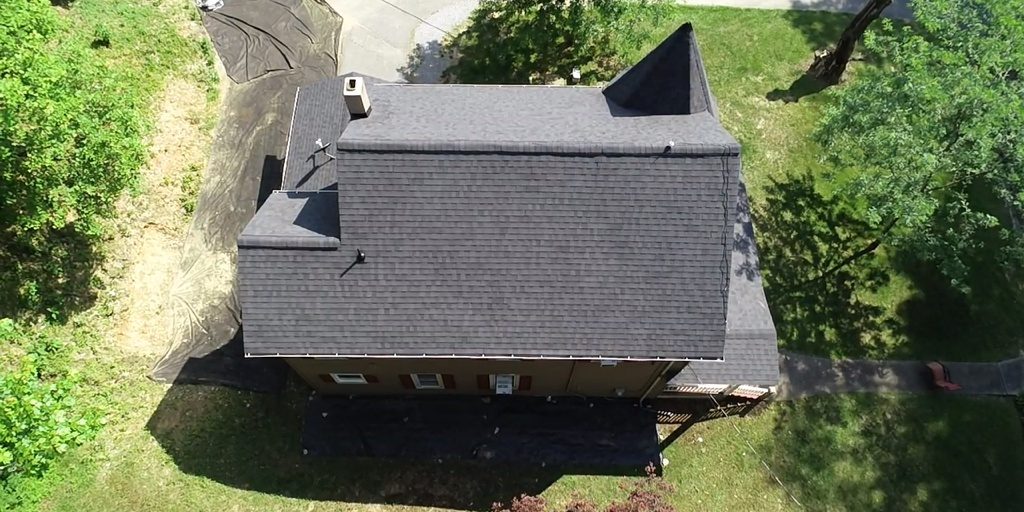If you have ever installed a new roof for your home, you already know it’s a major investment and expense. And if you are in the process of purchasing a home, a well-installed, high-quality roof is an important consideration.
To protect yourself from future expenses, a roof warranty can protect you from many unforeseen circumstances that may lead to costly roof repairs. But you need to make sure your warranties provide as much coverage as possible. And while roof warranties are an excellent way to protect the investment you made. Did you know that not all warranties are created equal? To learn more, read on!
Warranties 101: Manufacturer vs. Workmanship
First, there are manufacturer’s warranties and workmanship warranties. And it really depends on the type of warranty you have to determine what’s covered. While manufacturer warranties will cover the materials, workmanship warranties can cover the actual installation and workmanship that went into your roof installation.
For example, if the roof shingles are defective in some way. If they simply wear out prematurely – a manufacturer’s warranty should cover you. Fortunately, most of these warranties last anywhere from 20-25 years. Meanwhile, if you have a workmanship warranty, the contractor is essentially offering you coverage for his or her labor and installation. Roofing companies that offer workmanship warranties are clearly making an effort to stand behind their craft. However, unlike the manufacturer’s warranty, a typical workmanship warranty might only cover you anywhere from 1-10 years.
(Note: For more information about roof warranties in general – and questions to ask when you interview a roofing contractor – check out our Best Roofing Warranties article.)
Roofing warranties transfers
Considering the different coverage and terms each type of warranty affords you, it is critical that you know which type (or types) of warranty you have. It is also equally important to know about transferable warranties when it comes to your roof. Because roofing warranties transfers can save you (or a future homeowner) money by keeping you covered for many years.
When considering the terms of home warranty roof coverage and how it relates to roof warranty transfers, ask yourself the following questions to ensure you’re protected:
Is your warranty still valid?
First, make sure that the warranty itself hasn’t expired. For example, are you in year 21 of a 20-year warranty? Or are you still covered by your 20-year manufacturer’s warranty? But your workmanship warranty ran out five years ago?
After you reread the general terms, move onto the fine print. It is possible that your warranty prohibits you from hiring other contractors to repair anything related to the roof that may invalidate your warranty. Even if a roofing problem would have been covered, but another contractor did work on your roof. You may have voided your warranty, leaving you vulnerable if you need a roof repair or replacement.
Are YOU covered by the roof warranty transfer?
If you are the homeowner who installed the roof, then you already know the answer to this question. However, if you are the second (or third) homeowner with a warranty that hasn’t yet expired, you need to make sure that you have the same coverage as the original homeowner. That’s because if a warranty is not transferable, it does not matter if there is still “time” left on the warranty. You are not the person who purchased it – so you’re not covered.
Fortunately, there are roof warranty transfers that will provide you with home warranty roof coverage. Even if you’re not the one who installed the roof and/or purchased the warranty. If you are purchasing a home with a warranty that transfers, this could be very good news for you. But once again, read the fine print. Some transferable warranties have a limited number of transfers. So if the limit is two transfers and you’re the third person to purchase this home, you may be out of luck. Meanwhile, other transferable warranties offer unlimited transfers for the lifetime of the warranty. Some allow a transfer as long as you request the transfer within a certain number of years of the original installation. And still, others may offer the transfer, but with less coverage for each successive homeowner.
Even if the warranty is transferable, is there a fee?
Some roof warranty transfers charge an administrative fee to make the transfer. You may also need to have the roof inspected first before the transfer is granted. And if there are roof problems, the seller may need to fix it before the transfer can take place. On one hand, administrative fees are another added expense to consider. But on the other hand, it may be well worth the money to have coverage and peace of mind for your roof.
Mid-Atlantic Remodeling Company and Your Roof Warranty Transfer
Clearly, the terms of your roofing warranty will vary, depending on what you (or a previous homeowner) were entitled to. So let the experienced professionals at Mid-Atlantic Remodeling Company answer your questions. Whether you’re wondering about the transferability of your warranty – or if you are just curious about what is or is not covered with your current warranty, we can help!
Better yet, if you are in the market for a new roof, at Mid-Atlantic Remodeling Company, we offer a 30-year warranty on the full cost of materials and installation.
Call us today at (410) 918-0563, or visit us online at https://midatlanticremodelingco.com to learn more. We look forward to hearing from you!






